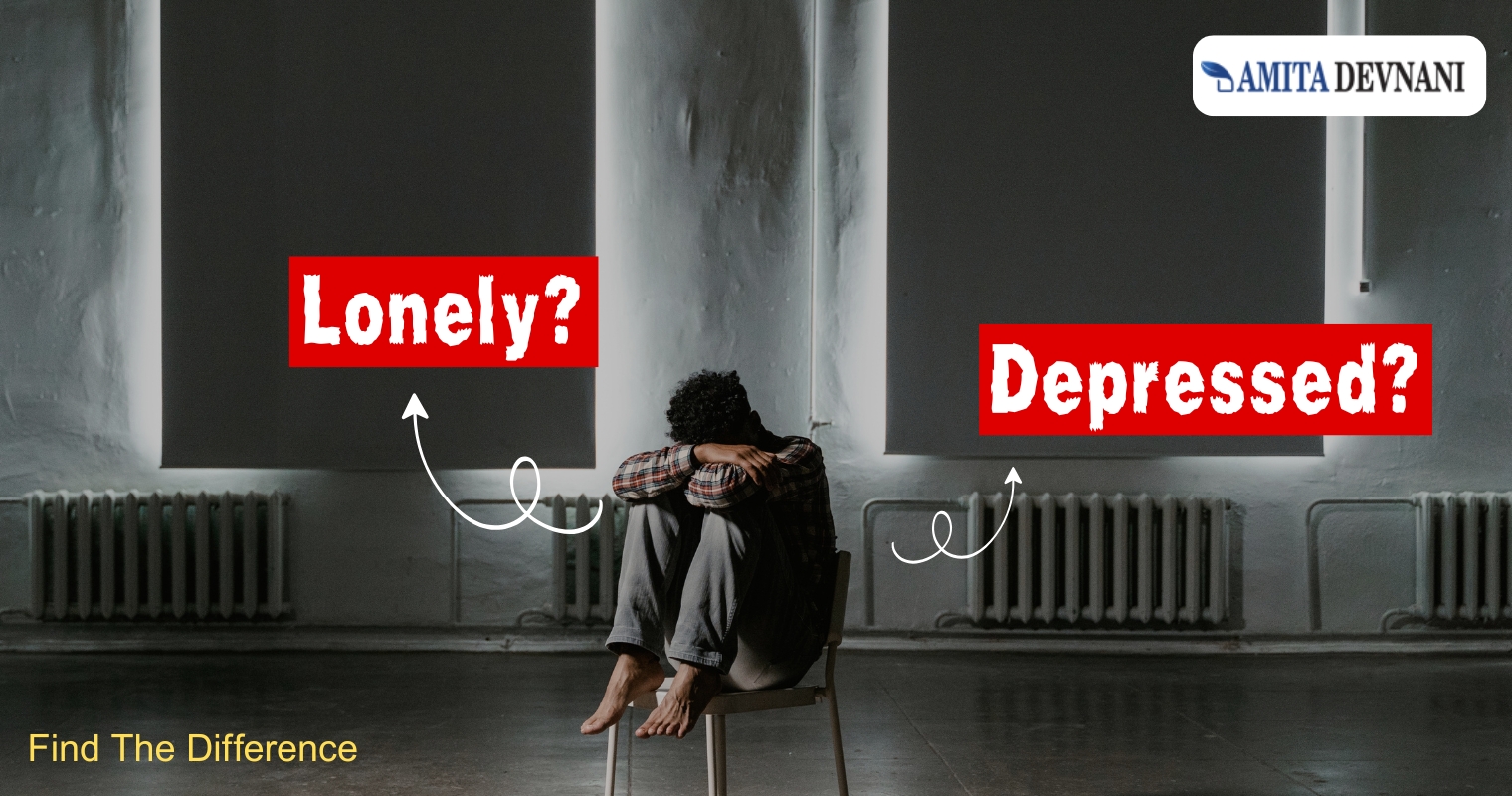- Mon-Sat 11:00 AM - 6:00 PM
- +91 91510 06808

April 30, 2025
Have you ever found yourself alone on a Friday night, scrolling through social media, seeing friends and family enjoying themselves and wondered, "Why am I so lonely?" Maybe this feeling has been lingering for days, weeks or even months. You're not alone in asking this question.
As a psychologist in Gurugram, I've sat with countless individuals who struggle to understand their feelings of loneliness. That nagging question often arises: "Is what I'm feeling normal or should I be concerned?"
Loneliness and depression might seem similar, they can both make you feel isolated, sad and disconnected. But they're actually quite different experiences, even though they often overlap.
Loneliness is a universal human experience. We all feel lonely sometimes and in many cases, it's a perfectly normal response to life circumstances:
Normal loneliness typically has an identifiable trigger, fluctuates in intensity and doesn't completely overshadow your ability to find moments of joy or connection.
While temporary loneliness is normal, persistent feelings of isolation might indicate something deeper. Here are signs your loneliness could be connected to depression:
Think of loneliness and depression as potential companions on life's journey—they don't always travel together, but they certainly can.
Loneliness can be both a symptom of depression and a risk factor for developing it. When we feel chronically lonely, our brains can interpret this as a threat, triggering stress responses and negative thought patterns that make us more vulnerable to depression.
Similarly, depression can intensify feelings of loneliness by:
If you're trying to understand your feelings, consider these questions:
Whether you're experiencing normal loneliness, depression, or both, compassion is essential—both from others and toward yourself.
At my practice in Gurugram, I often use Compassion Therapy approaches to help clients navigate these challenging feelings. Compassion Therapy recognizes that suffering is part of the human experience and helps you develop skills to respond to your struggles with kindness rather than self-criticism.
This approach is particularly effective for addressing loneliness and depression because it:
If your loneliness is:
It's time to reach out for professional support. Remember that seeking help isn't a sign of weakness—it's an act of courage and self-care.
Understanding the difference between normal loneliness and depression is an important step in addressing what you're experiencing. Whether you're dealing with a temporary bout of loneliness or facing depression, remember that these feelings, however painful, can change with the right support and strategies.
As a psychologist specializing in Compassion Therapy in Gurugram , I've witnessed remarkable transformations when people take that brave first step toward healing. The journey begins with simple recognition and self-compassion—acknowledging your feelings without judgment and treating yourself with the same kindness you would offer a friend.
If you're struggling to distinguish between loneliness and depression or looking for support on your healing journey, I'm here to help. Together, we can develop strategies tailored to your unique circumstances and work toward a more connected, fulfilling life.